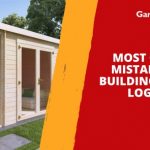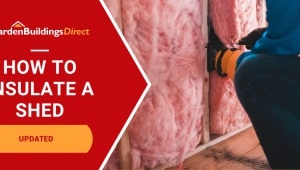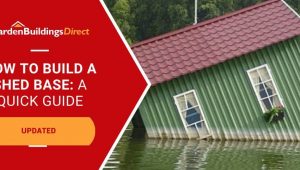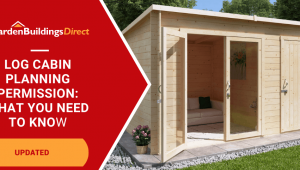Jump to:
Your home is not just a place to live; it’s also a valuable asset that holds potential for growth. Whether you’re planning to sell it in the future or simply want to maximise its worth, exploring ways to increase its value is a wise move. One aspect of property enhancement that often comes to mind is adding a garden building.
But how can a garden building increase the value of your house? Read on to find out! Here, we’ll explore the effects of adding one and discuss various factors that come into play.
Understanding Garden Buildings
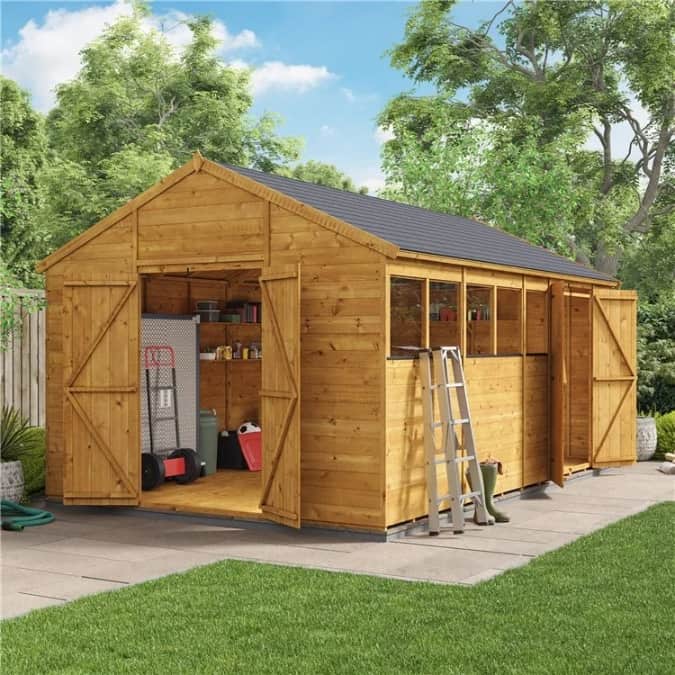
Garden buildings are versatile structures that serve as an extension of your home. They provide additional functional space while complementing the overall aesthetics of your property. Some common types include the following:
- Sheds: The ideal outdoor storage solutions for gardening tools, equipment, garden furniture, etc.
- Log cabins: Made from interlocking logs, providing a rustic and natural aesthetic. They can be used as extended living areas, offices, or retreats.
- Summer house: Used as a retreat or a space for relaxation and entertainment all year long.
- Garden offices: A tranquil environment separate from the main house. They provide a professional setting without the need for commuting.
- Play house: Specifically designed for children’s play and imagination. They offer a safe and fun space for kids to engage in creative play and make lasting childhood memories.
- Greenhouses: Garden buildings designed for plant cultivation, providing a controlled environment.
Factors Affecting Property Value
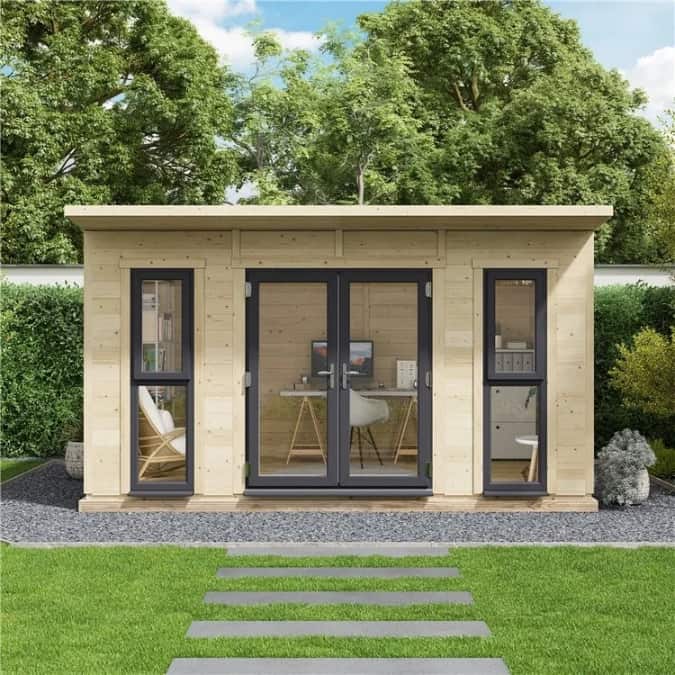
Property value is influenced by various factors that potential home buyers consider. Some key factors include location, size, condition, amenities, and market demand. These aspects play a crucial role in determining the value of a property.
Enhancing property value with garden features
Garden features and improvements can significantly impact property value. A well-maintained and visually appealing garden with landscaping enhances curb appeal. This also helps create a positive first impression.
Comparing garden buildings to other enhancements
When it comes to property enhancements, garden buildings offer unique advantages. Unlike interior renovations, these structures provide additional usable space without major structural modifications. They offer versatility where homeowners can adapt the space to their specific needs.
Compared to traditional extensions, garden buildings can be more cost-effective. Moreover, the latter can be less disruptive to the existing property. Most have a quicker construction process and can be installed in areas with limited space, to add.
Their distinctive selling point also sets a property apart from others on the market. They create a sense of uniqueness, providing potential buyers with options for recreation. For one, garden buildings can be tailored to offices, studios, or guest accommodations.
The Value-Adding Potential of Garden Buildings
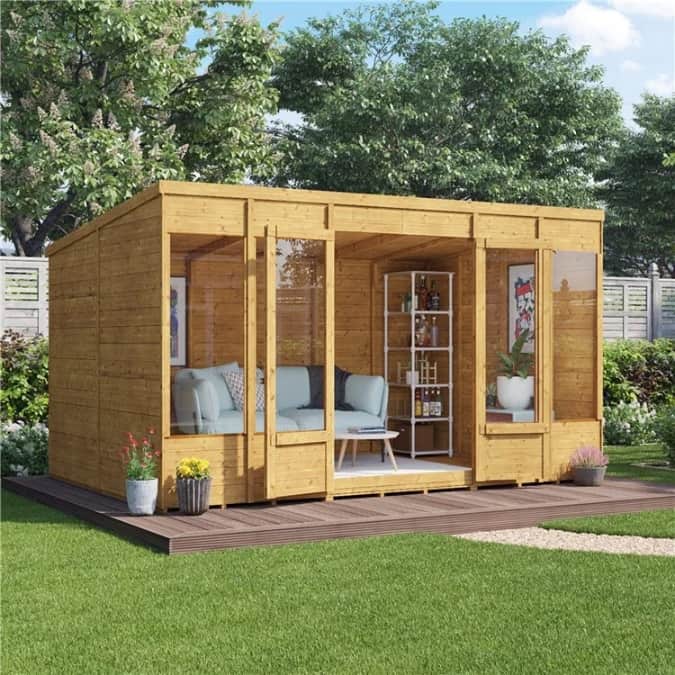
To maximise the value-added effect of a garden building, consider the following:
1. Quality construction
Ensure the garden building is constructed using high-quality materials. Most importantly, it should meet local building regulations. To ensure the structure contributes to long-term value, invest in:
- proper insulation
- durable materials
- attention to detail
2. Design and aesthetics
Aesthetically pleasing garden buildings tend to have a greater positive impact on property value. Opt for a design that harmonises with the overall style of your property. Also, go for something that complements the surrounding landscape.
3. Functionality and flexibility
Choose a garden building that serves a practical purpose and offers versatility. This provides added value by catering to various potential buyers’ needs.
4. Maintenance and upkeep
Regular maintenance of the garden building is essential for preserving its value. Keep the structure well-maintained and ensure it remains in good condition. Address any necessary repairs as soon as possible; don’t overlook the issues. A properly maintained unit will continue to contribute to property value over time.
5. Market demand and trends
Consider the preferences and demands of the local property market. Research current trends and potential buyer requirements. This can help you align your garden building with market expectations. In return, maximising its appeal and value.
6. Professional installation
While DIY options exist, professional installation comes with tons of perks, such as:
- proper construction
- adherence to regulations
- a polished finish
Seek experienced contractors or suppliers with a track record of quality installation.
By considering these, you can enhance your property value through a garden building! You can provide an attractive and functional addition that appeals to potential buyers.
Return on Investment (ROI) for Garden Buildings
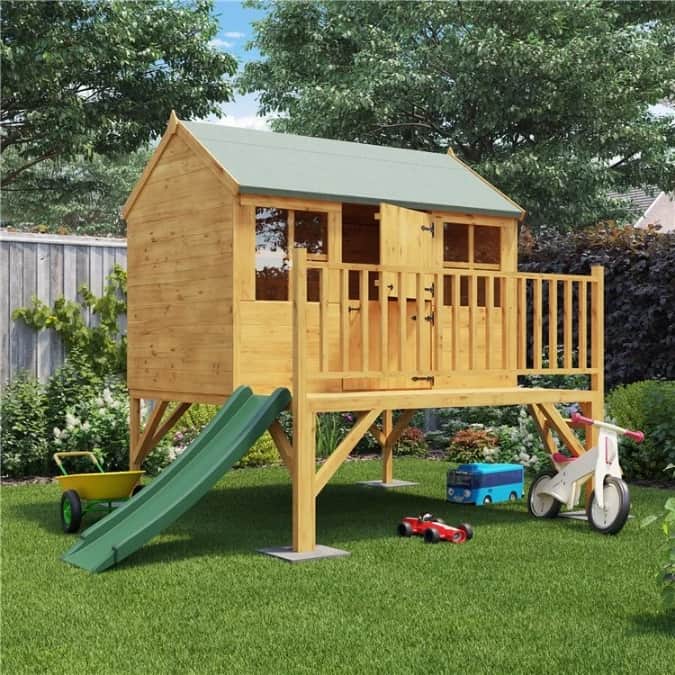
This involves assessing the financial benefits they can bring in relation to the initial cost of installation. While ROI can vary depending on multiple factors, understanding the key influences on ROI is crucial.
1. Location
The location of your property plays a significant role in determining the potential ROI of a garden building. Properties in high-demand areas or desirable neighbourhoods tend to yield higher returns. For one, they attract more buyers willing to pay a premium for additional features.
2. Quality
The quality of the garden building itself influences ROI. High-quality materials and construction methods result in a durable, attractive structure that maintains its value over time. A well-built garden building will likely provide a higher ROI than a unit of inferior quality.
3. Size and design
A well-designed garden building and appropriately sized impact ROI. It offers greater potential for maximising ROI. So, consider the optimal balance between available space, functionality, and market demand.
4. Property value increase
A few factors can affect the financial benefits derived from the investment, such as:
- the local market conditions
- demand for garden buildings
- the perceived value of additional usable space
Maintenance and Upkeep
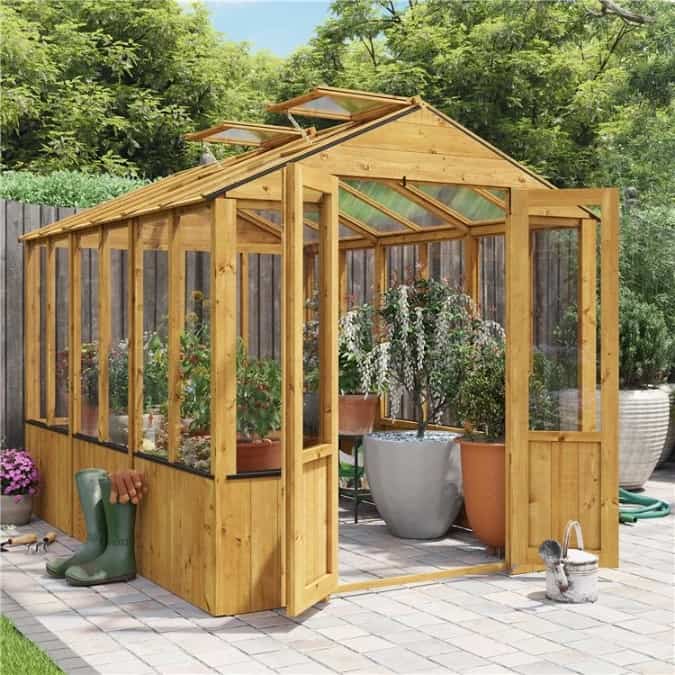
Regular upkeep is crucial for maintaining or increasing property value. Here’s how regular upkeep contributes to value preservation and ensures longevity:
- Structural integrity. Inspect for any signs of damage, such as cracks, leaks, or rot, and address them promptly.
- Aesthetics. Clean the exterior, repaint or stain if necessary. Also, maintain the landscaping around the structure.
- Functional maintenance. Regularly inspect and maintain the roof and gutters of the garden building. Clear debris, check for leaks, and ensure proper drainage.
- Seasonal care. Adapt the maintenance routine to seasonal changes.
- Professional inspections. Schedule professional inspections periodically to assess the overall condition of the garden building.
- Keep documentation. Keep a record of all maintenance, repairs, and upgrades performed on the unit. This documentation can be useful when selling the property.
Round-up
A well-designed and properly maintained garden building has the potential to increase the value of your house. Consider factors like location, quality, and market demand to maximise the value-added effect. And with regular upkeep, it can be a valuable investment that enhances your property and its market appeal.




